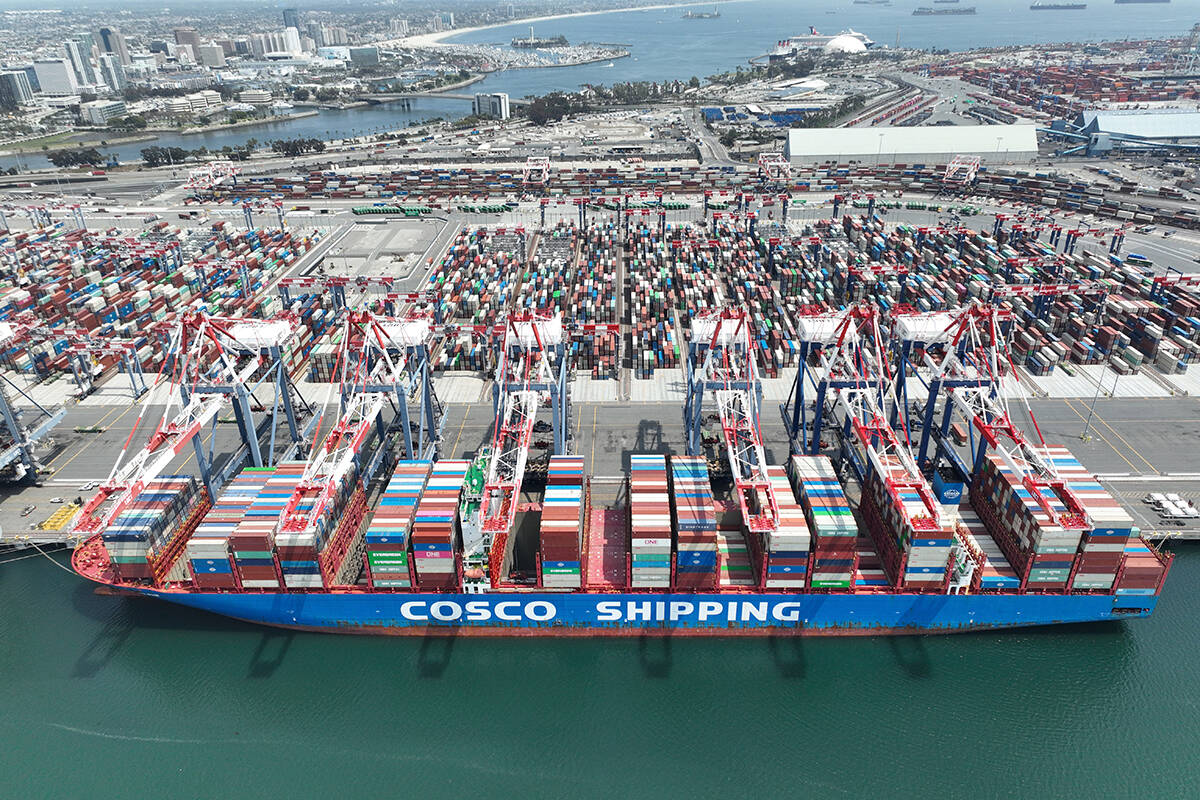SAO PAULO, Brazil (Reuters) — A farmers’ lobby in Brazil is seeking to end a two-decade-long agreement that forbids grain traders from buying soybeans from farms on deforested land in the Amazon rainforest, claiming the deal has created an uneven playing field.
Aprosoja-MT, based in western Mato Grosso state, says the agreement fostered “a purchasing cartel” while harming farmers who strictly comply with the South American nation’s forest code.
The group said in a statement that it formally asked antitrust watchdog CADE to end the deal.
Read Also

U.S. softens fees on Chinese shipping
The U.S. starts charging new fees on Chinese ships on Oct. 14. What are the ramifications for their ag exports?
Brazil is the world’s largest soybean grower and exporter, with Mato Grosso the country’s top-producing state.
Global commodity giants voluntarily signed up for the “Amazon soy moratorium” in the mid-2000s, pledging to stop buying soy from farms in the rainforest that were deforested from 2008.
Under forestry rules, Amazon landowners can clear up to 20 per cent of their property. However, an early 2000s deforestation surge sparked calls for action by companies that feared a wider ban.
Scientists and conservationists have praised the moratorium for slowing deforestation in the Amazon, the world’s largest rainforest and a bulwark against climate change because its trees absorb vast amounts of climate-warming greenhouse gases.
Aprosoja-MT noted it filed a complaint to CADE after years of failed negotiation attempts, adding that the moratorium generated US$3.3 billion in losses for the state.
CADE already has an open investigation over potential market manipulation related to the moratorium.
Trader lobby Abiove said the moratorium is “an instrument to defend Brazilian agriculture” and does not bring harm to the sector. Its lawyer, Francisco Todorov, said there is plenty of land to grow soybeans in the Amazon in regions deforested before 2008.
Earlier this year, Mato Grosso state lawmakers passed a law stripping tax breaks from firms adhering to the moratorium.
“Our commitment is with the families who have been harmed for almost 20 years,” Aprosoja said in a separate statement.
Environmentalists recently accused grain traders of seeking to weaken the moratorium.
Abiove has said it was holding discussions on the moratorium.

















